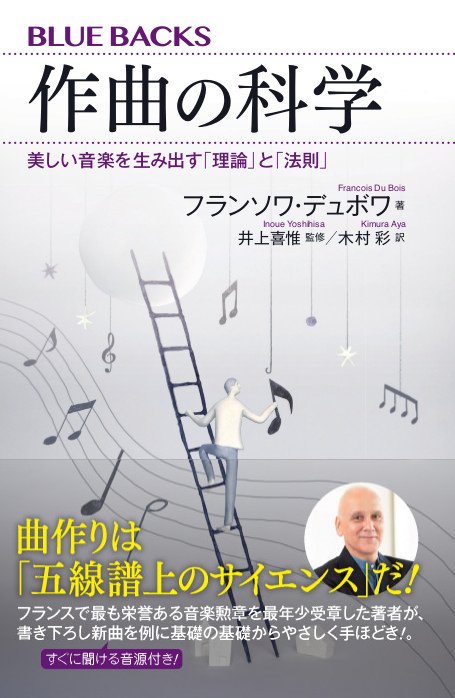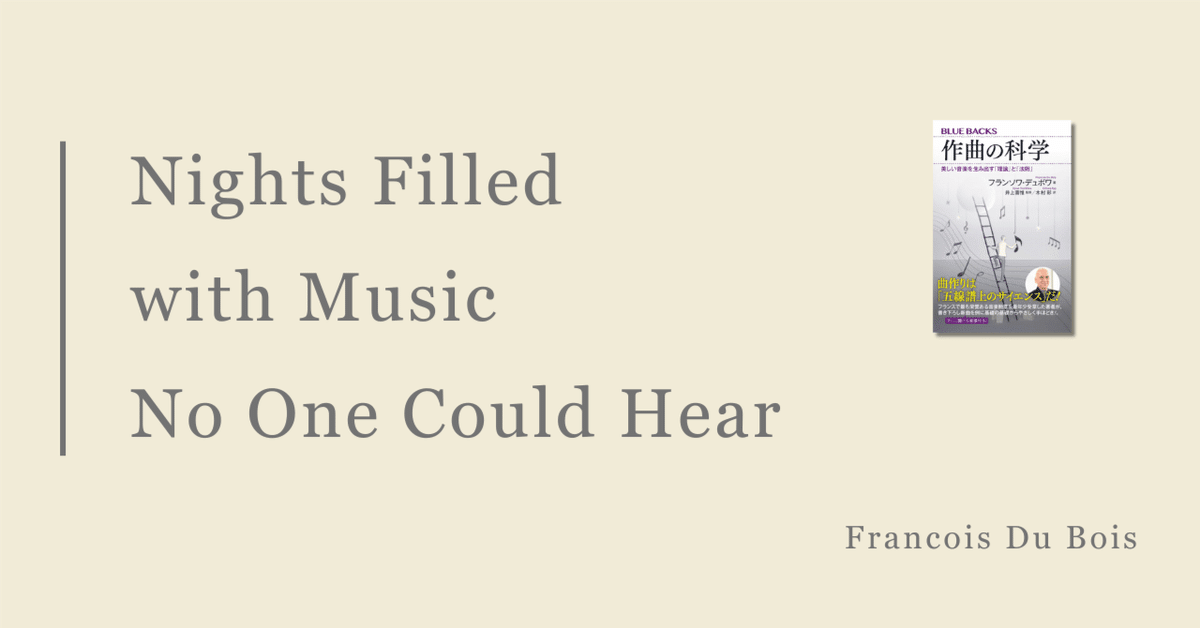
The "composition" and "principle" of creation as taught by a great composer
Creating music is a fun activity! Anyone can do it!
Here, we offer you an introduction to the early steps in the creative journey of François Du Bois, an internationally acclaimed marimbist and composer, as well as the author of The Science of Composition.
Nights Filled with Music No One Could Hear
It was during the solitude of night that I first began to playfully experiment with composition.
Born in the French countryside of Burgundy, I spent my early years in a traditional family home. Around the age of 13 or 14, I moved out of the main house into a small annex near the garden. That little space became my castle—a sanctuary filled with percussion instruments and a piano left to me by my sister. It was a Gaveau piano, with a tone that was nothing short of sublime.
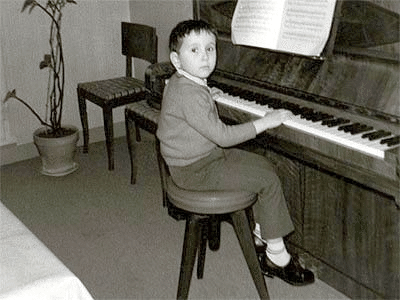
Because playing percussion at night was understandably forbidden, I turned to the piano. Its sound didn’t disturb the neighborhood. When thoughts kept me awake, I would climb out of bed and sit at the piano, creating melodies and harmonies. I searched for a sound that felt "right" to my ears, endlessly developing themes and harmonies into something whole and complete.
I worked through the night, in near silence, to avoid waking anyone. My parents never knew what I was up to—it was my secret. My mother must have wondered why her son often woke up with such a tired face as the sun graced the morning sky.
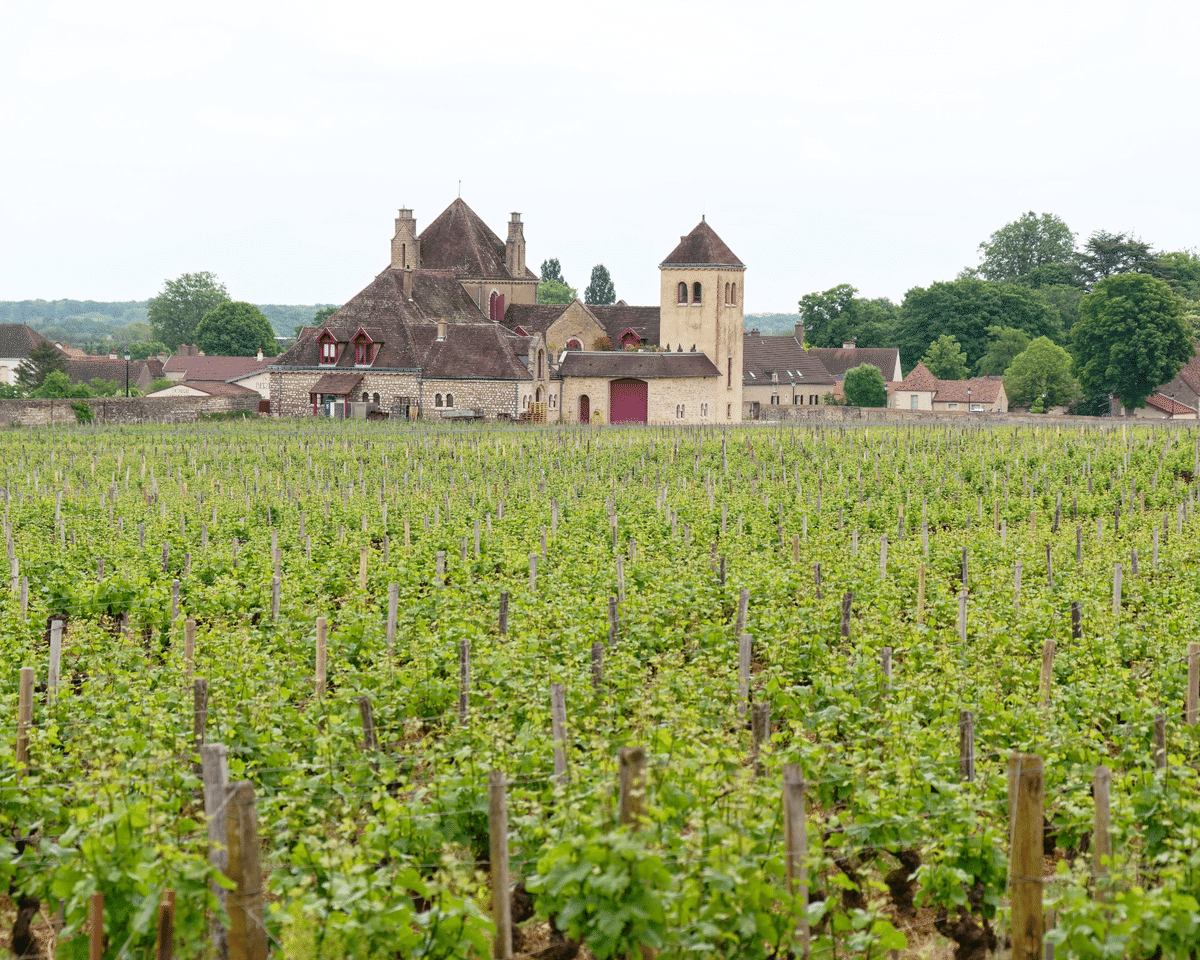
At that time, everything in my mind found expression in notes, especially heartbreaks and dashed hopes. Music became vital, soothing the anxieties of the unstable teenager I was. Without any formal knowledge of composition, I spent years exploring music in this clandestine, deeply personal way.
Later, I pursued formal studies at the conservatory, where I learned the rules of composition. By then, however, my style had already taken shape. The theories I learned only refined my musical approach and enhanced my understanding of sound.
Preserve the Freshness in Creation
After beginning my career as a professional percussionist at 17, I worked tirelessly to hone my craft. Composing for a living wasn’t realistic for me then, so I continued composing in secret. Over time, I was fortunate to meet great mentors, such as Olivier Messiaen and Alain Weber, and to share some of my work with them.
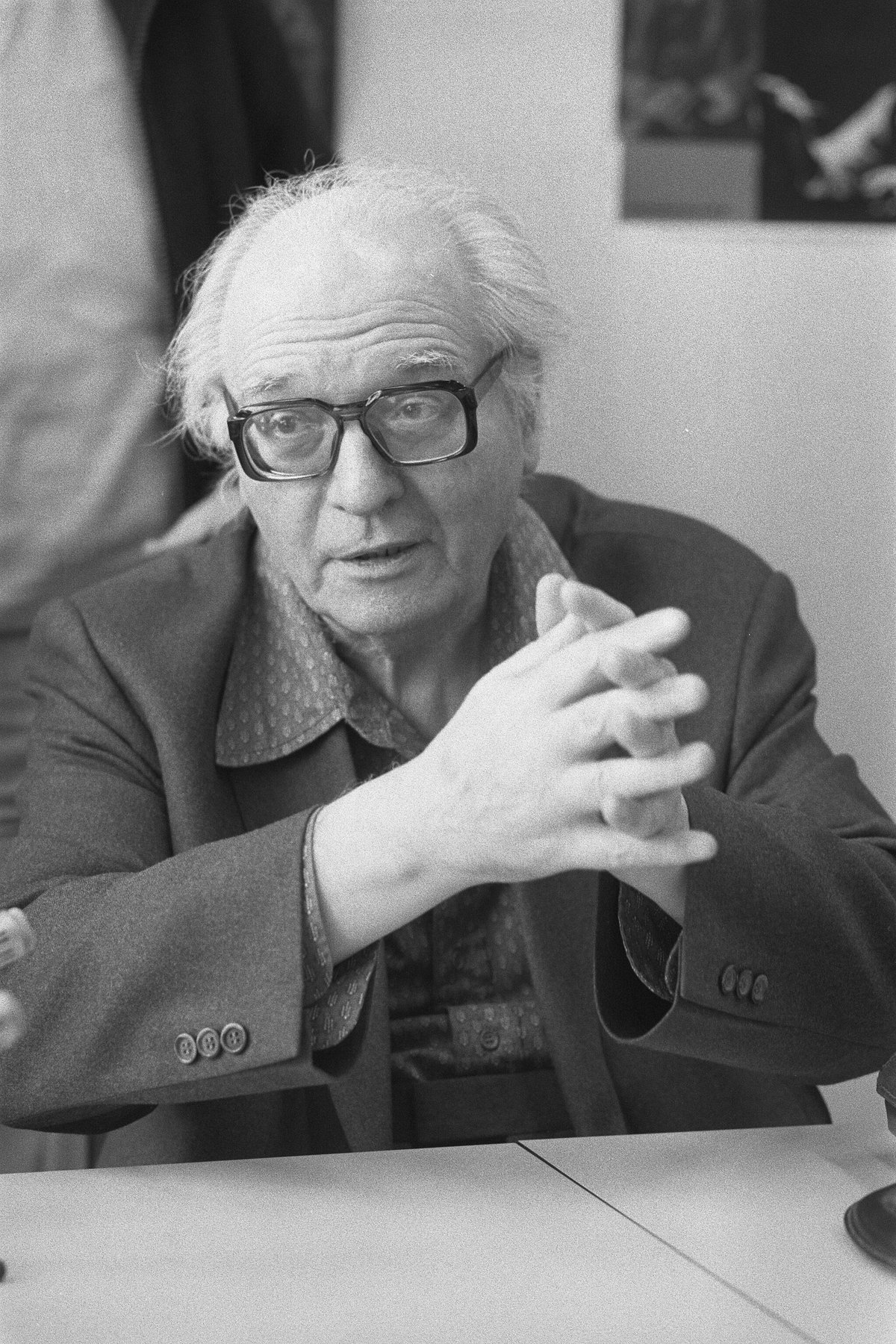
They recognized that I had a unique style. Without judgment, they encouraged me to embrace it—something I struggled to do. Most importantly, they urged me to preserve the “freshness” in my music, a quality they believed was essential.
Looking back, what they called "freshness" was likely the raw sensitivity of youth that I carried into adulthood.
Now, as a professional composer, I focus intently when creating, but never excessively. I aim to compose in the most spontaneous and natural way possible, avoiding the trap of becoming a slave to creativity.
I don’t approach music with grandiose ideas like “This work will change the world!” or “This is a masterpiece only I can create.” For me, music is about sincerity and authenticity.
The Book: A Composer’s Perspective
I wrote my book “The Science of Composition” to share a composer’s perspective on the act of creation. Discussions about composition often focus on technical analyses by musicologists or theorists. While valuable, these analyses rarely delve into the emotional intricacies of the creator’s experience.
This book is intentionally simple and non-prescriptive. It’s meant to invite readers to explore music without feeling intimidated. My hope is that people will dare to jot down a few notes—on their phone, a scrap of paper—add more, and experience the joy of creating.
The book also aims to help readers understand the composition process, its rules, and its theories, even without a formal background in music. Most importantly, it offers a glimpse into what a composer feels during creation.
The Mathematics of Music
Musicians often say, “Composition is mathematical.”
Many people think, “But music is an art, an expression of emotion—far removed from math.”
While inspiration is undoubtedly central to creation, mathematics also plays a key role.
For instance, music has consonances—notes that sound pleasing together—and dissonances, which are generally less harmonious. Rules dictate these combinations. Much like addition and multiplication in math, composers work with combinations of notes. Without understanding these principles, it’s challenging to create fully developed music.
The Surprises of Composition
Here’s an interesting and amusing story that highlights the difference between a composer’s intention to convey a specific emotion and the way it’s ultimately perceived by the listener.
The piece in question is titled “Appel”. It was composed by the renowned accordionist Richard Galliano for my marimba-violin duo and recorded for my first solo album, “Entre Deux Mondes” (although it was not included in the final release). After hearing the piece for the first time, my jazz teacher at the time suddenly burst into laughter.
“What happened?”
Surprised and slightly concerned by his reaction, I asked him what had caused such an outburst.
“It’s simple,” he said. “This music was clearly written with the intention of sounding like a blues.” He went on to explain, “Richard, who I know well, was undoubtedly expecting the tone and color to align with that of the blues. But the combination of the marimba and violin makes it sound nothing like the blues at all!”
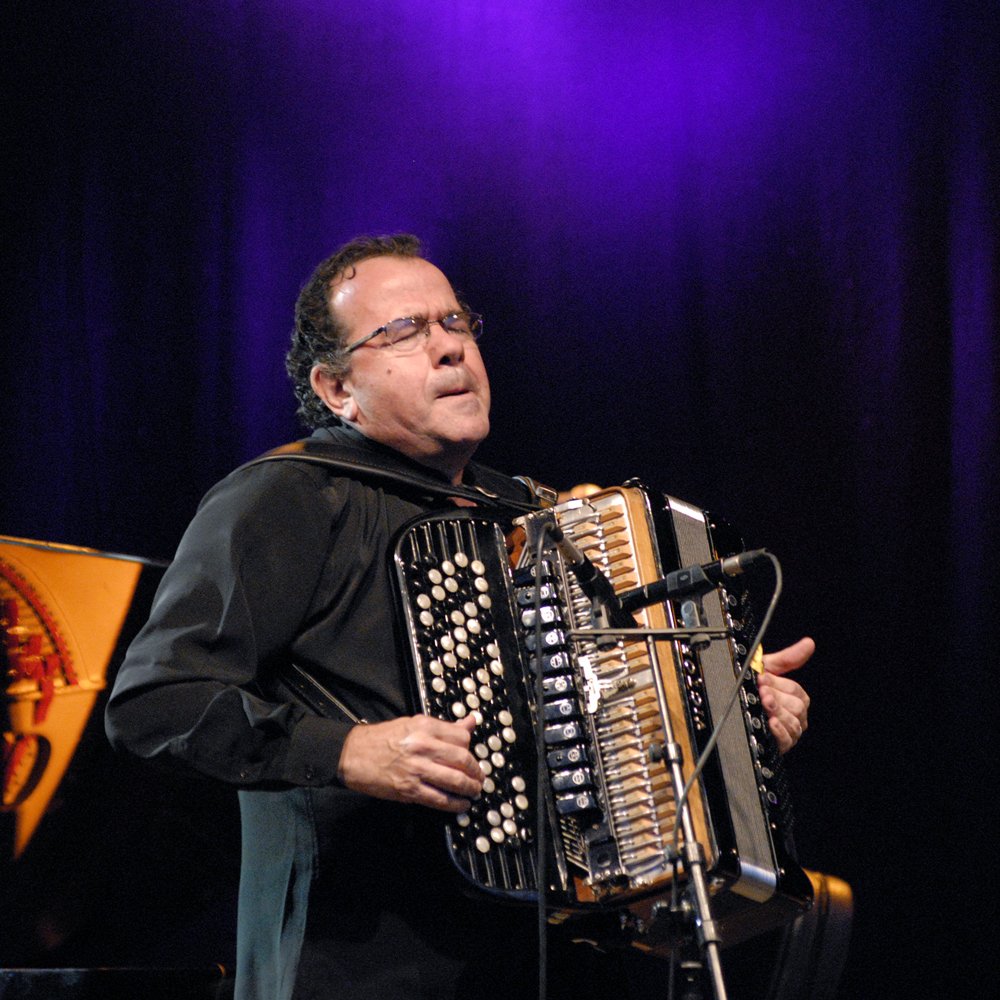
He must have been very surprised when he first heard it. And imagining that scene made me burst into laughter myself.
In my book, “The Science of Composition”, I explore why things like this happen so often. Creativity is born from the freedom of an individual’s spirit.
I hope this book inspires readers to feel bold enough to create music without apprehension or self-doubt, and that they can find joy and satisfaction in the process.
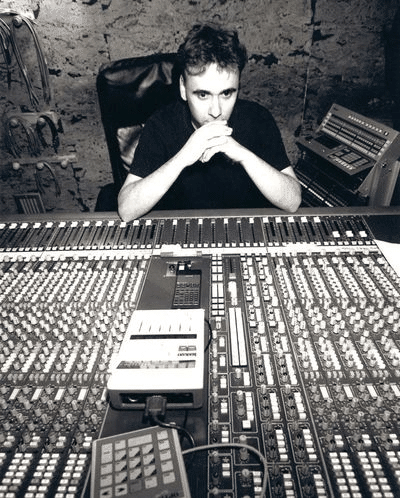
Self-Expression Through Sound
Expressing oneself through sound is very different from using words. It’s both primitive and profound, and it’s something that can be explored over a lifetime. As a universal means of expression, composition opens up “another dimension” that transcends the need for words.
So, I encourage everyone to experiment with sound. You might be surprised by the worlds you can create.
